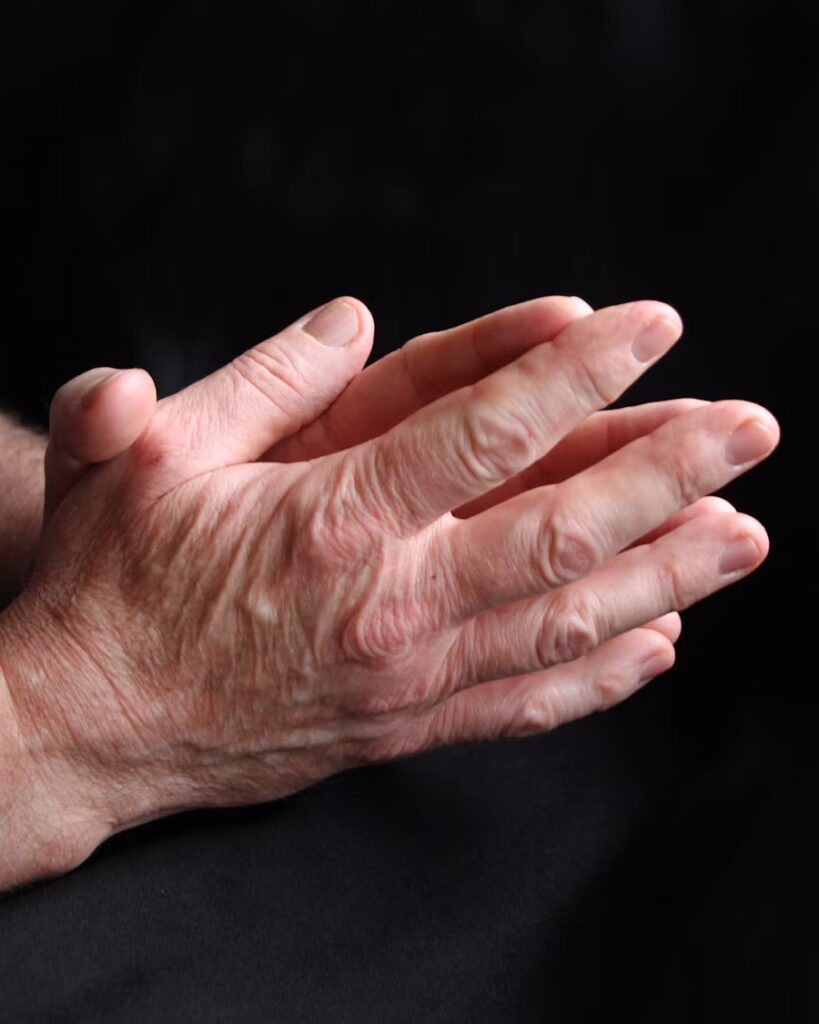
Six Evidence-Based Supplements
Osteoarthritis (OA), the most common form of arthritis, affects over 32.5 million adults in the United States alone, according to the CDC. It’s a degenerative condition marked by the breakdown of cartilage — the slippery tissue at the ends of bones that helps joints move smoothly. When that cartilage wears down, bone rubs against bone, leading to pain, swelling, stiffness, and reduced mobility.
Most people associate OA with aging. That’s partially true, but it’s not just about birthdays. Genetics, obesity, joint injury, and repetitive strain all play a role. And while medications like NSAIDs can offer temporary relief, they also come with side effects, especially with long-term use. That’s where supplements come in.
Below are six supplements supported by scientific evidence for osteoarthritis.
1. Boswellia Serrata (Indian Frankincense)
What it is: A resin derived from the Boswellia tree, used in Ayurvedic medicine for centuries.
How it works: Boswellia contains active compounds called boswellic acids, which inhibit 5-lipoxygenase (5-LOX), an enzyme involved in the formation of pro-inflammatory leukotrienes.
The evidence:
- A 2003 double-blind, placebo-controlled study published in Phytomedicine showed significant improvement in pain and physical function in OA patients taking 100mg of Boswellia extract daily.
- A 2018 meta-analysis in BMC Complementary Medicine and Therapies confirmed that Boswellia reduces pain and improves function compared to placebo.
Dose: 100-250mg of boswellic acids per day.
Bottom line: Good anti-inflammatory option with a low side effect profile. May be slow-acting but builds efficacy over several weeks.
2. Curcumin (from Turmeric)
What it is: The bright yellow polyphenol found in the turmeric root.
How it works: Curcumin blocks NF-κB, a key transcription factor in inflammation, and inhibits COX-2 enzymes, mimicking some NSAID effects without the GI toxicity.
The evidence:
- A 2014 randomized clinical trial published in Clinical Interventions in Aging showed that 1,500mg/day of curcumin was as effective as 1,200mg of ibuprofen in reducing knee OA symptoms.
- A 2016 meta-analysis in Journal of Medicinal Food found that curcumin significantly improved symptoms in OA compared to placebo.
Dose: 500mg, 2-3 times daily, ideally with black pepper (piperine) or taken as a bioenhanced formulation.
Bottom line: Anti-inflammatory and antioxidant. Slower than NSAIDs but safer long-term. Should be taken consistently.
3. Glucosamine Sulfate
What it is: An amino sugar found naturally in joint cartilage. Often sourced from shellfish.
How it works: Believed to stimulate cartilage repair and inhibit catabolic enzymes like MMPs (matrix metalloproteinases).
The evidence:
- The GAIT trial (Glucosamine/Chondroitin Arthritis Intervention Trial), sponsored by the NIH in 2006, showed that glucosamine sulfate (not HCl) may be effective in moderate-to-severe OA.
- European guidelines still include glucosamine sulfate as a treatment option, despite mixed results in U.S. trials.
Dose: 1,500mg per day, preferably as glucosamine sulfate (not hydrochloride).
Bottom line: Safe, may help in moderate OA. Look for pharmaceutical-grade glucosamine sulfate, not HCl.
4. Chondroitin Sulfate
What it is: A complex carbohydrate that helps cartilage retain water and elasticity.
How it works: Thought to inhibit degradative enzymes and support cartilage regeneration.
The evidence:
- A 2015 Cochrane review found that chondroitin had a modest but statistically significant benefit in reducing pain and improving function.
- The MOVES trial (2014) found that chondroitin combined with glucosamine was non-inferior to celecoxib for knee OA.
Dose: 800-1,200mg daily.
Bottom line: Often combined with glucosamine. Better quality evidence in European studies.
5. MSM (Methylsulfonylmethane)
What it is: An organic sulfur compound naturally found in fruits, vegetables, and grains.
How it works: May reduce inflammatory cytokines like TNF-α and IL-6, and improve antioxidant capacity.
The evidence:
- A 2006 study in Osteoarthritis and Cartilage found that 6g/day of MSM for 12 weeks significantly reduced pain and improved physical function.
- A 2020 meta-analysis published in Evidence-Based Complementary and Alternative Medicine confirmed MSM’s modest effect on OA symptoms.
Dose: 1,500-6,000mg per day, typically divided.
Bottom line: Often included in combination supplements. Low side effects, well tolerated.
6. SAM-e (S-Adenosylmethionine)
What it is: A naturally occurring compound involved in methylation and neurotransmitter synthesis.
How it works: Has anti-inflammatory and cartilage-protective effects. Also improves mood, which can indirectly benefit pain perception.
The evidence:
- A 2004 study in BMC Musculoskeletal Disorders found that SAM-e (1,200mg/day) was comparable to NSAIDs in pain reduction.
- A 2002 meta-analysis in American Journal of Clinical Nutrition concluded SAM-e is effective and well tolerated.
Dose: 400-1,200mg/day, ideally in divided doses.
Bottom line: Especially useful in patients with coexisting depression. More expensive than other options but dual benefit.
Final Thoughts:
These supplements have randomized controlled trials behind them, albeit often with smaller sample sizes than Big Pharma trials. While none should replace standard therapy in severe OA, they are valuable adjuncts, particularly for those trying to reduce NSAID load or who aren’t surgical candidates.
Don’t fall for gimmicks or miracle cures. Choose formulations backed by science, and give them time to work. Most supplements require at least 6-8 weeks of consistent use to show benefit. And always discuss any new regimen with your doctor, especially if you’re on other medications.
References
- Sengupta K, et al. “Clinical evaluation of a Boswellia extract in the treatment of osteoarthritis of knee–a randomized double-blind placebo controlled trial.” Phytomedicine. 2008.
- Henrotin Y, et al. “Curcumin: a new paradigm and therapeutic opportunity for the treatment of osteoarthritis: curcumin for osteoarthritis management.” SpringerPlus. 2013.
- Clegg DO, et al. “Glucosamine, chondroitin sulfate, and the two in combination for painful knee osteoarthritis.” N Engl J Med. 2006.
- Wandel S, et al. “Effects of glucosamine, chondroitin, or placebo in patients with osteoarthritis of hip or knee: network meta-analysis.” BMJ. 2010.
- Debbi EM, et al. “Efficacy of methylsulfonylmethane supplementation on osteoarthritis of the knee: a randomized controlled study.” Osteoarthritis Cartilage. 2006.
- Bradley JD, et al. “Comparison of an oral S-adenosylmethionine with naproxen in the treatment of osteoarthritis.” J Rheumatol. 1994.
Leave a Reply